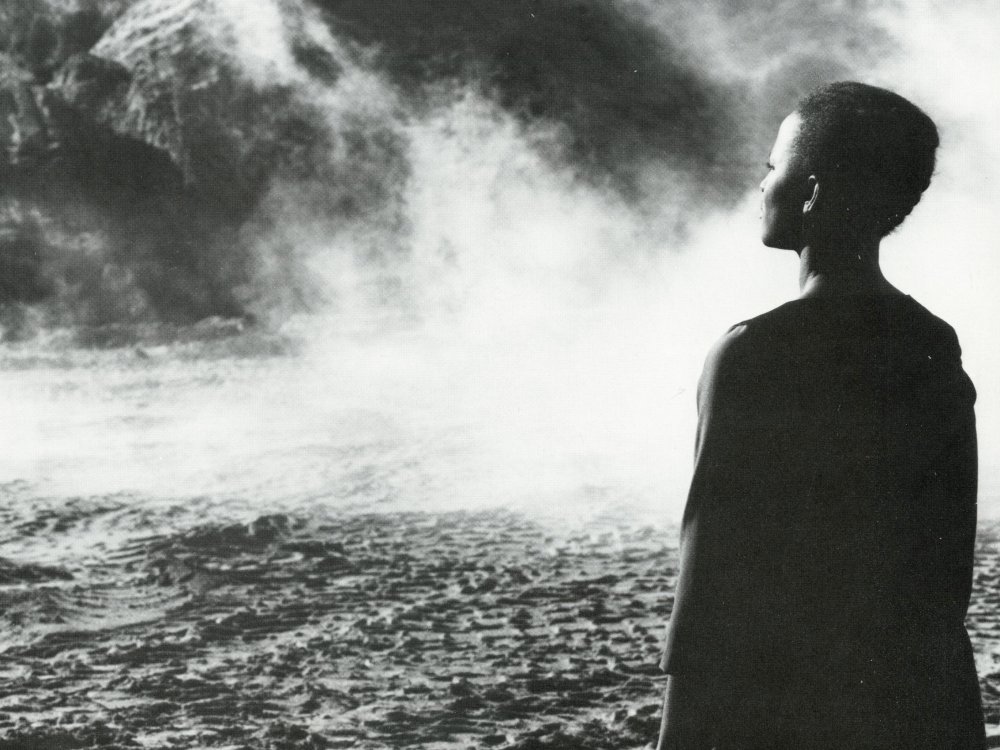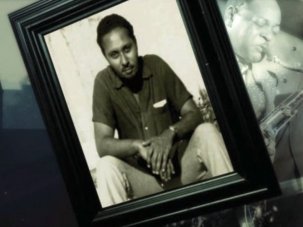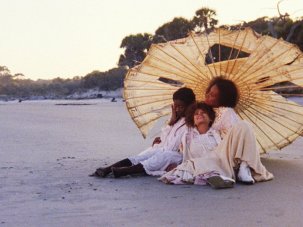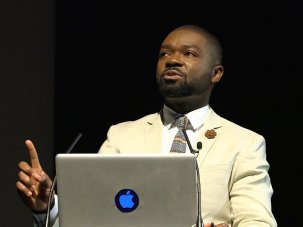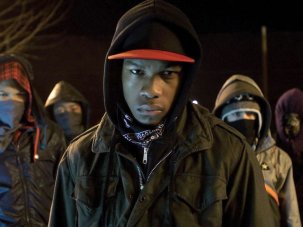The award-winning films of Maureen Blackwood are to receive a long-overdue survey at the Watershed in Bristol, as part of the 2019 Cinema Rediscovered festival. She may be best known for The Passion of Remembrance (1986), the debut feature from the Sankofa Film and Video workshop, which she wrote and co-directed with artist Isaac Julien, but the rest of her work, the 35mm and 16mm films that she made between 1986 and 1994, has been too easily forgotten. Focusing on the rich yet largely untold stories of black British women and encompassing drama, satire, biography and documentary, Blackwood’s powerful films explore the dynamics of fractured black British identities and explore new approaches to the politics of cinematic representation in the African diaspora.
Cinema Rediscovered, including A Passion for Remembering: The Films of Maureen Blackwood, takes place in Bristol from 25-28 July 2019.
Just before the festival began, I spoke to her about politics of filmmaking, challenging expectations, representing black beauty and lessons she has learned as a writer/director.
What made you become a filmmaker?
I don’t know that I set out to be a filmmaker. I wanted to tell stories, writing has always been my first love. I’d have to say I got into film via screenwriting, a love of storytelling, and through various twists and turns, I ended up becoming a part of Sankofa and to then become a filmmaker.
What made you want to become a writer, people don’t wake up and say, and I want to be a writer, or do they?
I think they do. As a child, I remember being taken to the library picking up books and reading whatever caught my eye. I liked being able to escape into a book. I can’t remember a point where there was another career option. As I grew older, I had some kind of vague thoughts about the media and film. Being born and raised in England, you become aware of your absence, not just on TV but in all areas of life, you looked around and you’re not there.
Can you remember what you were reading when you were younger?
I enjoyed the classics that we were reading in school, like Shakespeare, Chaucer and Wordsworth. Later on, I read books by James Baldwin, especially Giovanni’s Room, I also love Octavia Butler, she was so ahead of her time in terms of the characters and the central role that black women had in the worlds that she created. Other authors were Donna Tartt and Poppy Z Brite’s gothic horror. Really a mishmash of English classics mixed in with more edgy stuff, which doesn’t necessarily mirror what I write.
What gave you the confidence to become a filmmaker?
When I was attending what is now the University of Westminster. I felt the need to do something that related to me. At that time I became aware of ideas about black aesthetics, which had been around for some time. However, my tutors who were all white men didn’t know anything about the area, but one told me about an African-American working at the BFI called Jim Pines. It is because of meeting Jim that I got involved in Sankofa, he introduced me to Isaac Julien, Martina Attille, Nadine Marsh-Edwards and Robert Crusz. I don’t know that I necessarily would have had the confidence to do any of what I’ve done, or what I’m still trying to do it if it hadn’t been for Jim.
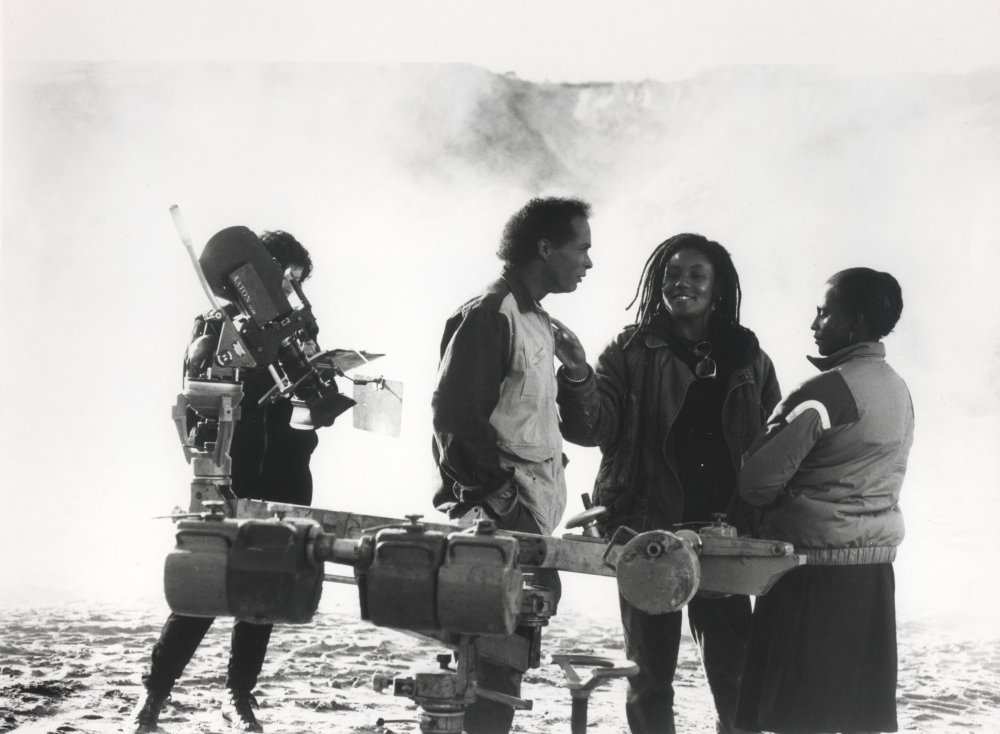
The Passion of Remembrance (1986)
When you were starting out in Sankofa, what were the main challenges that you experienced?
Raising money and getting the money to set up, but also, figuring out how five very different people were going to work together. I’m not quite sure if we ever really sorted that out. My concerns were very much located in the arena of community politics. I wanted to be able to make films about lives and issues that were not being told or were forgotten. As a group of filmmakers, we wanted to carve out space for ourselves to experiment because that’s what many white filmmakers had. We felt as black artists that we needed to have space where we could create, because it’s only when you have that space, that you can start to unpick and unwrap what you are and who you are – that self-knowledge is revealed in the stories and films that we can tell about ourselves.
What was the first film that you saw that inspired you as a filmmaker?
The film that made me think that I would like to make a contribution was Killer of Sheep, by Charles Burnett, the film was just a revelation to me. It’s a film about moments, minuscule issues, it is not about a huge overarching theme, and it is a small, story with a big heart. I love the fact that the film said so much using so little. It was one of the first films where, I saw normal, black people in this very normal setting.
Can you talk about what it meant to you at the time to be co-writing and directing a feature film like The Passion of Remembrance.
I don’t know that I’ve ever thought about it in that way. As a group, we wanted to be able to make films that we thought were important, from my perspective, I had been the youngest member of Camden Black Sisters, and just hearing those black women talking about their lives and the things that they had gone through was amazing. When we were figuring out the kind of film we wanted to make, it was very important to be able to talk about black women’s involvement in all the kinds of political struggles that people had been through in England, and were still going through. I wanted there to be a space within the narrative that touched on some of the Camden Black Sisters’ stories and recognised that black women were mainly absent from the narratives of the 50s and 60s. It was important to see a black men and black women dialogue discussing with some of the ‘unfinished business’ between them.
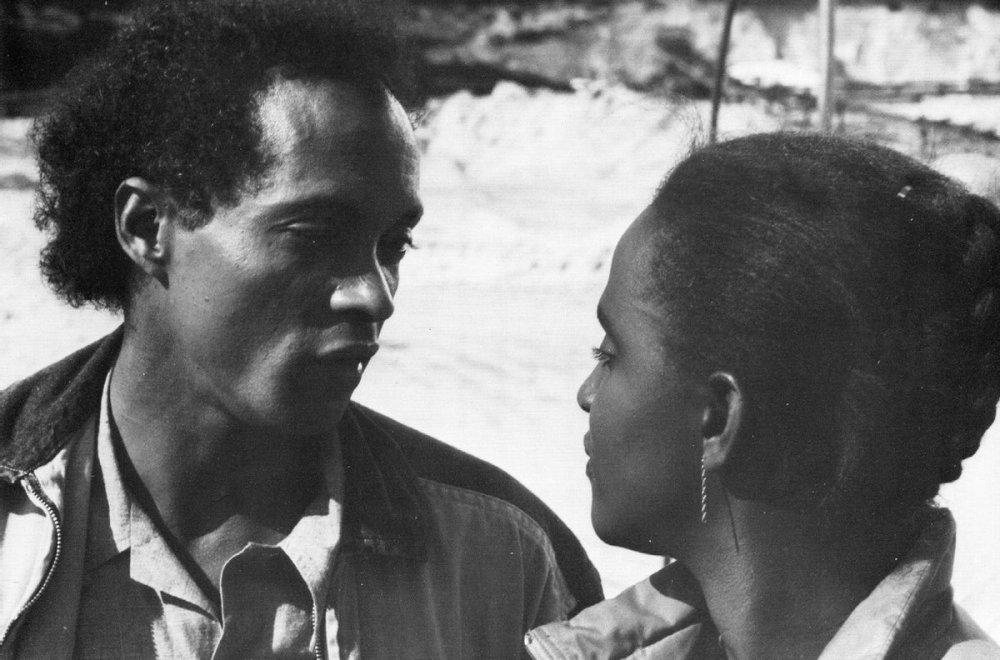
The Passion of Remembrance (1986)
Looking at the archive footage in Passion, the UK looks very dystopian. Can you say something about the political backdrop in the 1980s?
There was Greenham Common, Gay Liberation, SUS laws, black people being burnt to cinders at parties, also a lot of surveillance of black people generally. There was high youth unemployment, the miners’ strike … society was changing and altering from what we had known and older black communities had experienced. When Margaret Thatcher came to power there was a lot of tension. On the plus side, there was a lot of outright opposition and people were somehow feeling empowered to stand up and fight back and just trying to be present. Black communities were very, very vocal and had been very vocal for years about the way we were being victimised and treated. My memory of the late 80s and early 90s is of different rebellions and political fightbacks linking up merging and making connections.
The Passion of Remembrance made quite an impact and divided opinions. What is your memory of how was the film received at the time?
When Passion came out and we were going around screening it in the late 1980s it was a volatile time. At the time there were so few films being made which put a black person on the screen, and then here comes Passion, with these speakers in a strange stark landscape, talking in a way that people thought was not, necessarily black enough. Then you have the story of the black family, and these guys talking about their sexuality. There were so many things in Passion, black people were saying WTF is this? We are being killed out here, and you guys are going off making this experimental film when we need to talk about what’s happening on the streets. We really had to defend ourselves. From our perspective, all of these things were going on, and yes, black people were in a fight for their lives a lot of the time, but at the same time, we were bolshie enough to stick to our guns. We were living many different existences as black people and Passion was an attempt to represent some of those experiences, we have to be able to have the space to celebrate and interrogate that.
A programme of your short films including Perfect Image? will be screened at Cinema Rediscovered. As a film that seems to talk to many of our current concerns about body image, can you say a bit about why you wanted to make it?
I remember seeing films by Kathleen Collins, Julie Dash and Ayoka Chenzira and enjoying the sense of aesthetics, politics, experimentation and play that their work seemed to contain. Perhaps consciously or unconsciously some of that had a bearing on Perfect Image? I wanted to make something that had historical references, but also asked questions about self-image and constructed perceptions of the black female body. How did we get to the place where we spend so much money and time fretting about how we look? We didn’t come to a place of being so preoccupied with how our hair, skin and bodies look overnight.
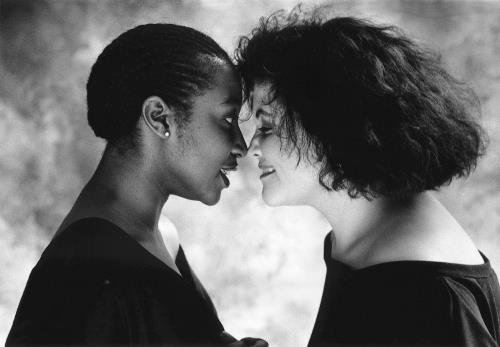
Perfect Image? (1988)
At the time was it hard to find actresses for the roles and to get them on board with the project?
We have a long history of black theatre in England, so there were actresses around. That said, I was very lucky to find Irma Inniss and Amanda Symonds. There was chemistry between them and they worked incredibly well together. I also think that the kind of subject matter was one that if you’re a black woman you could relate to and had your own experiences to draw from and share.
Perfect Image? is a sophisticated mix of music, witty dialogue and uncomfortable yet recognisable sketches. Can you say something about the format?
When I was writing it I did a lot of research about black women and body image. I remember going to the Royal Anthropological Society to look for pictures of black women naked or being paraded around and being measured. As a black woman, looking through these images I remember thinking: what have we been through? I wanted the images to be there but I knew I didn’t want to make a film that was emotionally draining to sit through. When the pain is very deep, sometimes the way to deal with it is to come at it from a different way, which is why comedy works so well; you can handle very difficult and complex subjects by crafting something that has lightness on the top, but then you’ve got the iceberg underneath. I didn’t want to dwell on any one thing for too long, so presented shifting personas in constant dialogue about topics, such as hair, skin lightening, scarification and shadeism, without being too heavy. Perfect image? is a good conversation starter. It is ages old now, but we are still dealing with the same issues in slightly different forms.
One of the strengths of Perfect Image? is your use of music and lyrics. Can you just say something about that decision?
Music is one of the dimensions of film that can add different layers of meaning. Due to the complexity of the subject, it was important for me to utilise as many layers as were available. During the scripting process, when the idea of using songs came up it helped me to have another way to talk about black women’s feelings about self-image. Thinking it through using that extra audio space was another way to question and to celebrate, so music, specifically jazz and rap, added a lot to the finished piece.
Looking from the US where you are now based, are you aware of new and emerging black British actors, writers and directors?
In terms of the UK, black actors seem to have more prominence, which is great. Regarding the voices of new or young directors, you’re not getting that news here in my neck of the woods. We sometimes hear about Amma Asante, but aside from someone like Steve McQueen, no one black and British is emerging offering the cinematic confidence of Ava DuVernay or the poetry of say, Barry Jenkins. I suspect we come back to the same thing: certain people will be picked up and nurtured, others won’t be. Women filmmakers have always had that: you’re not nurtured through two or three films or your failures. It seems that black people in the UK still lack those creative spaces when it comes to getting work in the cinema. In 2019 we are at a stage where we are still looking for ourselves and are easily disappointed. The types of narratives that we as black people want to tell are not what a lot of executives want to make, what they are really interested in is the black film that is in their head, one they think a black audience wants to see, because everybody wants to make the black film – but I don’t know what that is.
Cinema Rediscovered 2019 trailer
Where would the money come from to produce these new films?
I’m not necessarily thinking that we should be looking to Channel 4. the BBC or Film 4, perhaps we need a different business model. We need some of these black entrepreneurs to be getting behind a different type of work. It’s not just about what we want to say, but who can we form alliances with, who has the financial clout to enable us to make a range of films. This is the issue. It’s never a lack of storytelling capabilities, talent or vision. It’s access to finance and to all of those things that you need to make the films in the way we envisage it.
What advice would you give to your younger self?
Get a trade. I would also say don’t beat yourself up about every little thing. All you can do is to move through life and you’ll have encounters and lots of things will happen that will make you who you are. Don’t get disillusioned, just keep going.
And what advice would you give to young women starting to make films now?
To be fearless. I think that’s really important because there are so many people who will tell you you can’t do things. I remember sitting in a meeting with somebody discussing a script I had written (Pieces of the Dream, a family drama with multiple narratives), who said, “Oh well I’ve tried to make a film like this and I couldn’t do it.” Basically what you’re being told is that me a white man with everything at his disposal tried and couldn’t do it, so the subtext is, “Who are you and what makes you think that you’re going to be able to do it?” That script is still sitting on my desk and if I don’t produce it as a film I would like to turn it into a novel. You have to find the strength and the arrogance to just do it and to say, “I’m going to keep moving forward to do this thing one way or another.” So yes, you need to be fearless, and you also need to be OK with making mistakes.
-
The Digital Edition and Archive quick link
Log in here to your digital edition and archive subscription, take a look at the packages on offer and buy a subscription.




